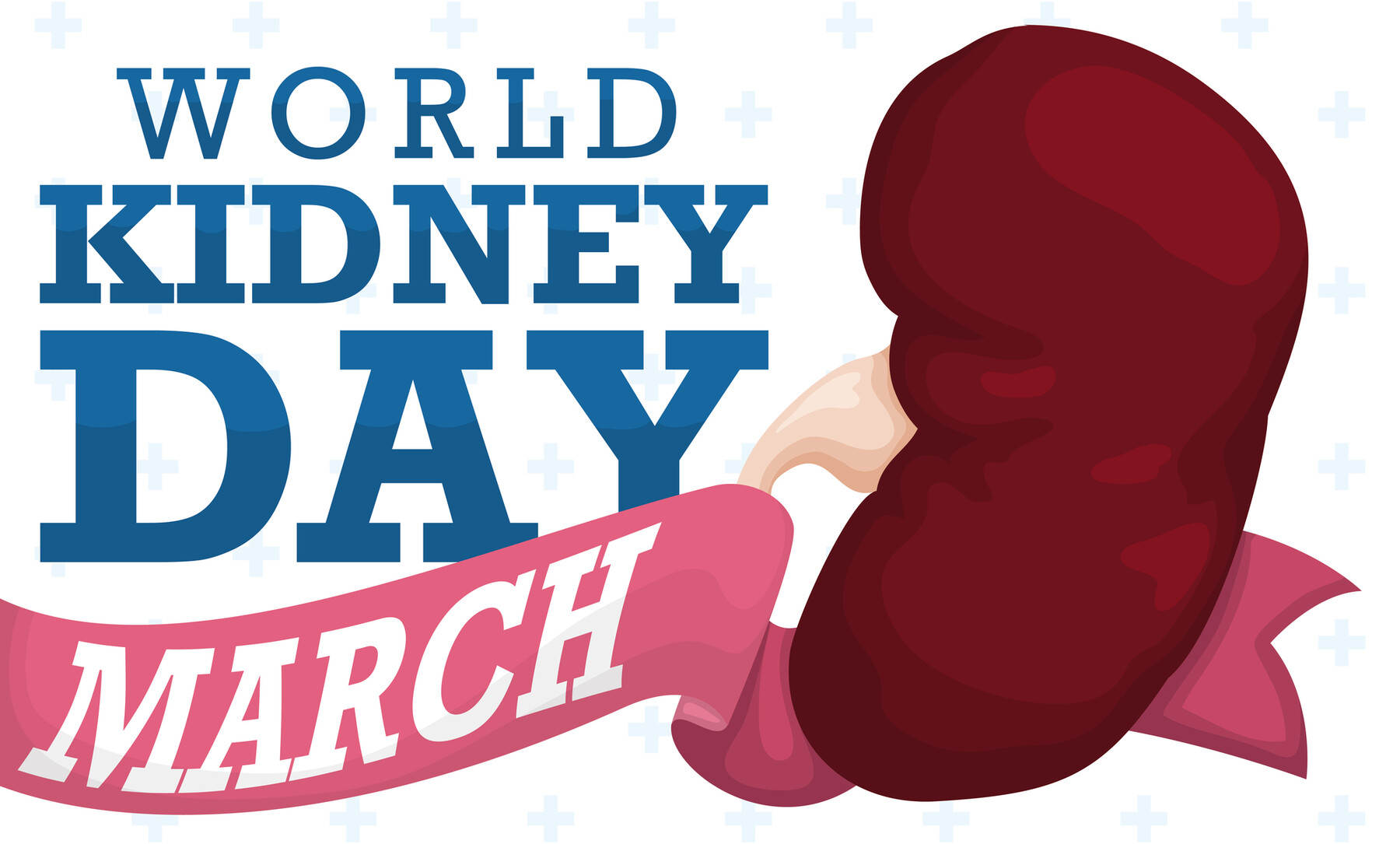~ by Carol Vartuli
Two fist-sized, bean-shaped organs work ceaselessly every day, removing excess water and waste from your body. Healthy kidneys can filter up to 150 quarts of blood a day, producing one to two quarts of urine.
Unfortunately, damaged kidneys can’t do that job well, resulting in chronic kidney disease (CKD). CKD is diagnosed in stages (one through five) determined by the extent of organ damage and the level of filtration efficiency. In later stages, regular artificial cleansing of waste from the blood (dialysis), or a kidney transplant, become necessary to sustain life.
The National Kidney Foundation is dedicated to raising awareness about kidney disease, treatment, and prevention. Since March is National Kidney Disease Month, the foundation urges you to consider just how vital your kidneys are. This is especially relevant because 37 million Americans are living with kidney disease, and most of them don’t know it.
Generally, people with kidney disease do not experience symptoms until the late stages. “This is one of the reasons only 10 percent of people with chronic kidney disease know they have it,” says Dr. Joseph Vassalotti, Chief Medical Officer at the National Kidney Foundation.
Who Gets Kidney Disease?
There are several major risk factors that put individuals at greater risk of kidney damage. One is family history of kidney failure. Others are diabetes, high blood pressure, heart disease, and advancing age.
While these are the most common causes of serious chronic kidney disease, other kidney issues can occur, but rarely cause permanent damage if properly treated. An example is kidney stones, pebble-like materials that form in the kidney caused by high levels of mineral in the urine. Benign cysts in the kidney are also not uncommon, and are typically monitored by a physician unless they cause other problems.
Why, and When to Seek Help
If you’re are in a high-risk category for kidney disease, or are over age 60, it’s important to be tested annually, and to mention any of the following potential signs to your doctor:
- Tiredness, lack of energy, trouble concentrating
- Trouble sleeping
- Dry, itchy skin
- Urinating more frequently
- Blood in your urine
- Excessive bubbles in the urine (foamy)
- Persistent puffiness around your eyes
- Swollen ankles and feet
- Poor appetite
- Muscle cramping
While any of these indicators could be related to other conditions, several of them together can be the signs of advancing, chronic kidney disease.
According to Dr. Leslie Spry, researcher and director of the Dialysis Center of Lincoln, Nebraska, “If you wait until you have symptoms to be tested, you’ve waited too long.”
Nutrition and Healthy Lifestyle in Managing (or Preventing) Kidney Disease
In addition to raising awareness about kidney disease this March, the National Institutes of Health (National Institute of Diabetes and Digestive and Kidney Diseases) stresses that adopting a healthy lifestyle can help you manage and slow progression of CKD and its complications.
People with kidney disease may need to control the amount of protein, sodium, potassium, phosphorus, and calcium in their diet. If your kidney disease gets worse, you may need to limit other nutrients as well. Your dietitian or healthcare provider will tell you if you need to do this based on your blood test results.
Dr. Spry, who is also a spokesperson for the National Kidney Foundation, sums it up: “Taking care of overall health helps protect kidney health.”
“Wise practices include exercising regularly, low salt diet, controlling weight, monitoring blood pressure, cholesterol and glucose levels, not smoking, drinking moderately, avoiding non-steroidal anti-inflammatory drugs (NSAIDs) and getting an annual physical.”
For further information, contact the National Kidney Foundation toll-free: 855.NKF.CARES. You can also email NKFCares@kidney.org or visit their The National Kidney Foundation website.
For CKD-friendly recipes, visit the Kidney Kitchen website.
The information in the above article is not intended nor implied to be a substitute for professional medical advice, diagnosis, or treatment. Always seek the advice of your physician or other qualified health provider with any questions you may have regarding a medical condition.
